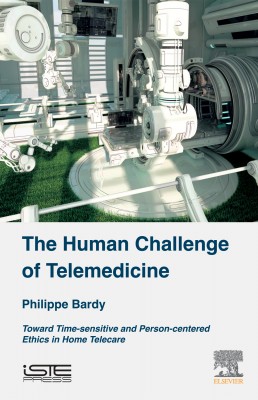
Telemedicine is a response to the challenges facing healthcare provision today: inequalities in access to care, medical demography, decompartmentalization of the system and economic constraints. There is a developing awareness of the need for a multidisciplinary, transversal and coordinated approach to improve health pathways.
However, between reducing costs and supporting the development of telehealth participants, the economic outlook of contemporary telemedicine gives rise to fears of the advent of medicine that is impersonal and commercial, and that favors a strategy of profitability over a humanistic approach to care.
The relational ethics of telecare described in this book is inspired by “person-centered” approaches, taking into account the interests of the “concrete” chronic patient (renal and heart failure, diabetes) and understanding, on the basis of case studies, the need to reconcile today’s human values of care with the innovative practices of remote monitoring and care managed autonomously by the patient.
Part 1. The Person in the Age of Telecare
1. The Advent of Digital Healthcare.
2. The Human Ethical Challenge.
Part 2. Telecare Phenomenology
3. A Cross-dimensional Look at the "Patient Experience".
4. The Patient Experience under Telemonitoring.
5. The Person Standing the Test of Digital Clocks
6 experimental Knowledge of the "Subject of Care".
Part 3. Towards an Ethics of "Time-sensitive" Telecare
7. Subjectivizing the Future: or, the "Patient Project" Temporality
8. "Chrono-sensitivity": From Concepts to Ethics.
Philippe Bardy is a linguist and doctor in philosophy of science and technology (Panthéon-Sorbonne University, France). His research explores the philosophy and ethics of emerging healthcare technologies. He is also a senior lecturer in English at the University of Paris Descartes, France.